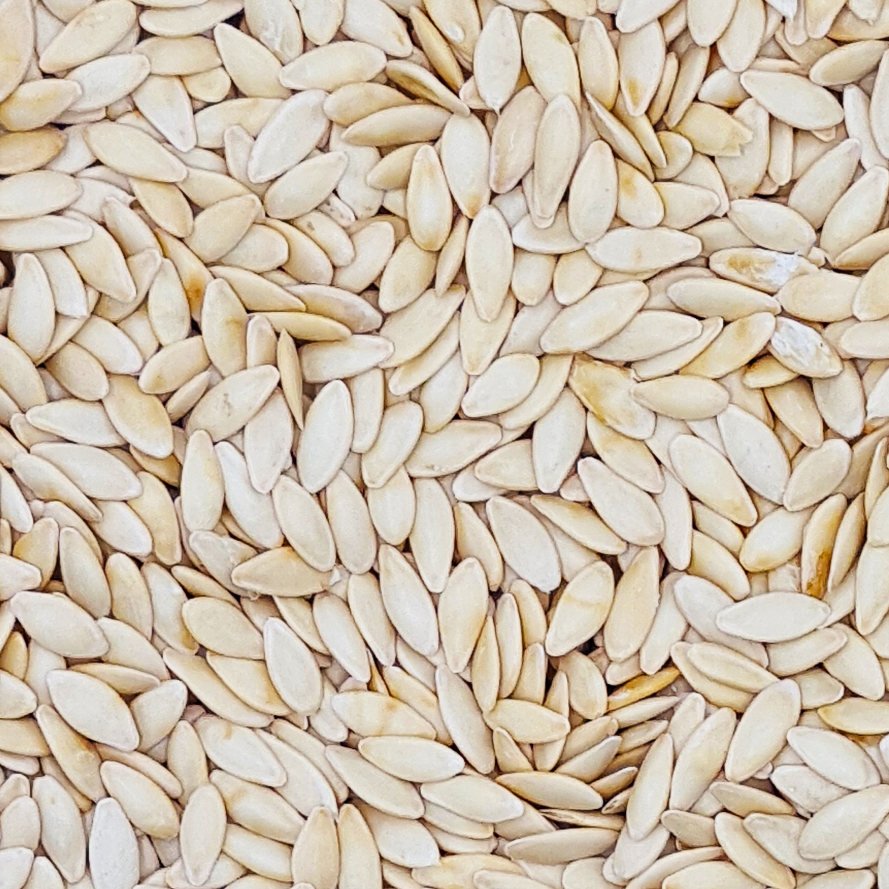Cucumber seeds are the seeds found inside a cucumber. They are a small but important component of the cucumber and can also be a nutritious addition to the diet of rodents and birds.
Cucumber seeds are rich in certain minerals and vitamins that can be beneficial for animal health. Minerals include calcium, magnesium and potassium. These support bone and muscle function and help maintain a healthy heart and nervous system. Cucumber seeds also contain some vitamins such as vitamin K, which is important for blood clotting, and vitamin C, which can strengthen the immune system.
Cucumber seeds play a different role in the diet of different rodent and bird species:
- Dwarf hamsters, golden hamsters and teddy hamsters: cucumber seeds can be given in moderation as a healthy treat or snack. Be careful not to confuse cucumber seeds with melon seeds, as these have a much higher carbohydrate content.
- Rats,
gerbils
and coloured mice: Cucumber seeds can also be used as an occasional treat. They offer variety and contain valuable nutrients.
- Chinchillas: Chinchillas can also enjoy cucumber seeds, but they should not be the main food source. A balanced diet is crucial to maintain their health.
- Degus and guinea pigs: Cucumber seeds can be fed in moderation, but they should not be given too often. Make sure they are part of a balanced diet.
- Rabbits: Cucumber seeds should only be given occasionally as a treat. Make sure they don't eat too many.
- Parrots and parakeets (budgerigars, cockatiels, agapornids, spreling parrots): Cucumber seeds can be used as part of a varied diet for parrots and parakeets. However, make sure they are not the main source of nutrition.
- Finches (zebra finches, canaries, amadiums): Cucumber seeds are suitable for finches in moderation, but the main food source should still be specialised finch food.
Remember that a balanced diet is most important for all these animals. Cucumber seeds should only ever be used as an occasional treat or supplement and should not be the main food source.





